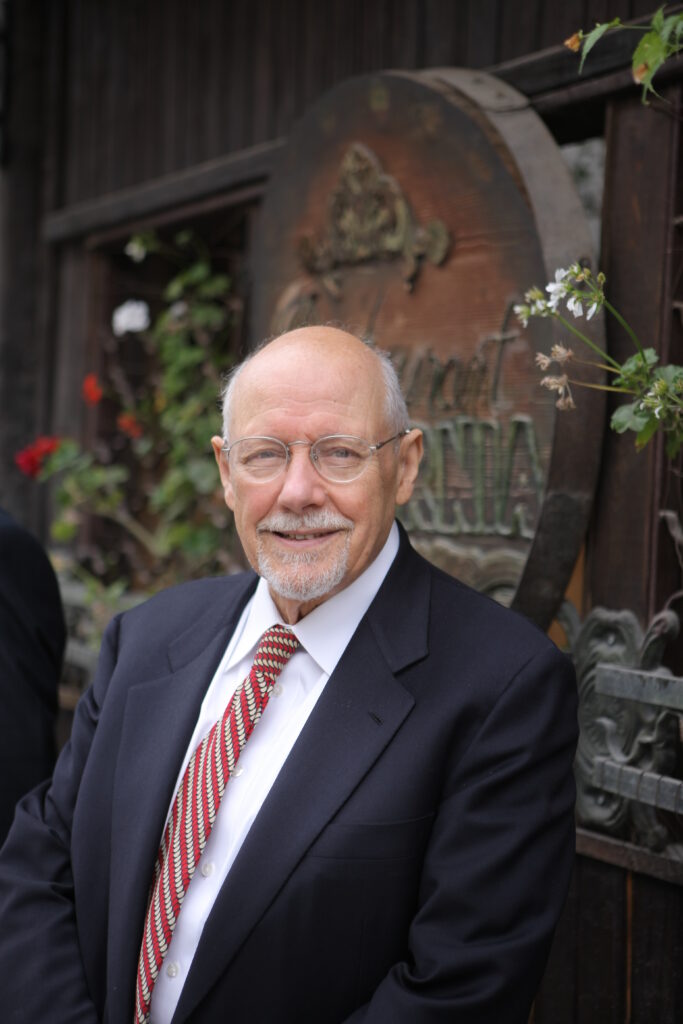This last semester, beloved professor of interreligious studies and Judaism, Rabbi Jack Bemporad, Founder and Director Emeritus of the John Paul II Center for Interreligious Dialogue (JPII Center), offered a course on Maimonides, a prominent 12th-century Jewish philosopher and rabbi, to this year’s Russell Berrie Fellows and other students at the Angelicum. This course, “Maimonides Teaching on the Nature of God and the Ethical life,” seeks to reconcile the teachings of philosophers with the teachings of religious traditions.
Rabbi Jack not only situates Maimonides’ philosophical and religious discourses within contemporaneous traditions of Judaism, Christianity, Islam, and Greek philosophy but also connects them to contemporary questions. “What I was really trying to get my students to see,” Rabbi Jack explains, “are the kinds of issues that Maimonides faced and to what extent these issues are the same issues we are facing today.”
Russell Berrie Fellow Halil Avci (Germany), reflects on the course: “Rabbi Jack focused on the proper understanding of God envisioned by Maimonides and its implications for current interreligious relationship building. He repeatedly said that the teaching of God is ultimately linked to the understanding of ourselves and thus helps in relationship building with God and our neighbors. This course helped me further build mental bridges between Judaism and Islam through the teaching of Maimonides.”
Rabbi Jack has a rich legacy of scholarship and teaching and has been a mentor to dozens of students of interreligious dialogue from around the world. “A teacher’s job,” he states, “is to somehow present things in a way that will make them want to think these things through—to want to solve these problems on their own.” Rabbi Jack describes his teaching style as “not dogmatic at all.” “I’m happy to listen to anybody,” he says, “I want to help them grow.”
“I always felt in the seminars, webinars, and classes, there was space,” reflects JPII Leader Gianluca Avanzato (Cohort XIII), “more of an opening rather than a narrowing. I really appreciate that space.”
“Most of what I teach my students, they’ll forget,” admits Rabbi Jack, “But what I hope they will never forget is the method of learning or the method of questioning or the method of investigation.” One of the main methods of investigation Rabbi Jack stresses—not just in this latest course on Maimonides but also throughout his teaching career—is the importance of context: the need to “de-politicize” on top of “de-ideologizing” and “de-mythologizing.” The organization of religion can be “distressing,” Rabbi Jack says, because it often wants to “carry favor” with the surrounding political structure; religions, he explains, are sometimes “forced to go along with the worst practices of the government of which it is a part.” For Rabbi Jack, this can affect the “job of religion,” which should be “the conscience of society and the voice of humanity.” “Where are you going to appeal to conscience,” Rabbi Jack asks, “if you can’t appeal to conscience in the religions? Where is there going to be a voice for humanity?”
This is why Rabbi Jack encouraged the Russell Berrie Foundation to create the JPII Center for Interreligious Dialogue and the year-long fellowship program in Rome. He shares his thought process around the Center’s inception: “Get the leaders, give them a Rolls-Royce scholarship, and expose them to a variety of religions so that they can say, ‘Look, based on what we’ve studied, what you’re saying is not the Judaism that I’ve been exposed to. It’s not the Islam that I’ve been exposed to. It’s not the Christianity that I’ve been exposed to.’”
Rabbi Jack emphasizes the importance of religions knowing about and defending other religions. And this is what he teaches. One of the main takeaways of this year’s course on Maimonides for Russell Berrie Fellow Fr. Jackson Johnson (India) is as follows: “We shouldn’t criticize people before putting ourselves in their shoes. Only via communication with the other can we fully comprehend their situation and background.”
At the center of Rabbi Jack’s philosophy is education. The Russell Berrie Fellowship has offered an education in Interreligious Studies to more than 140 Fellows from around the world. “We’ve got really wonderful, wonderful students who are doing great work in the world,” Rabbi Jack shares, “and I consider it one of the great things I, in some small way, was responsible for.” For Rabbi Jack, it has been “a joy” and “a great privilege” to work with people from all different backgrounds through the years—people who, after completing the Russell Berrie Fellowship in Rome, have continued promoting the ideals of the program around the world and devoting their lives toward dialogue and peace.

